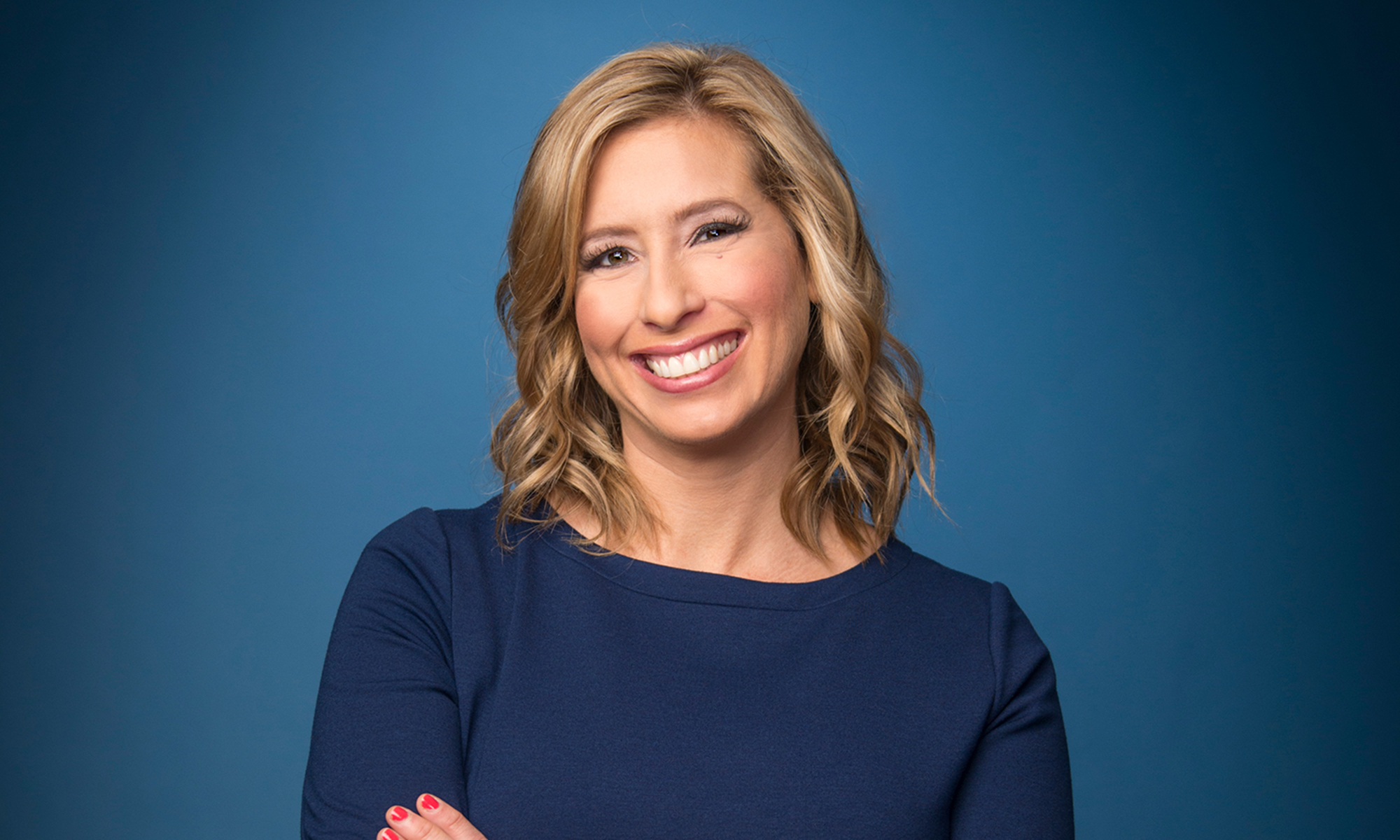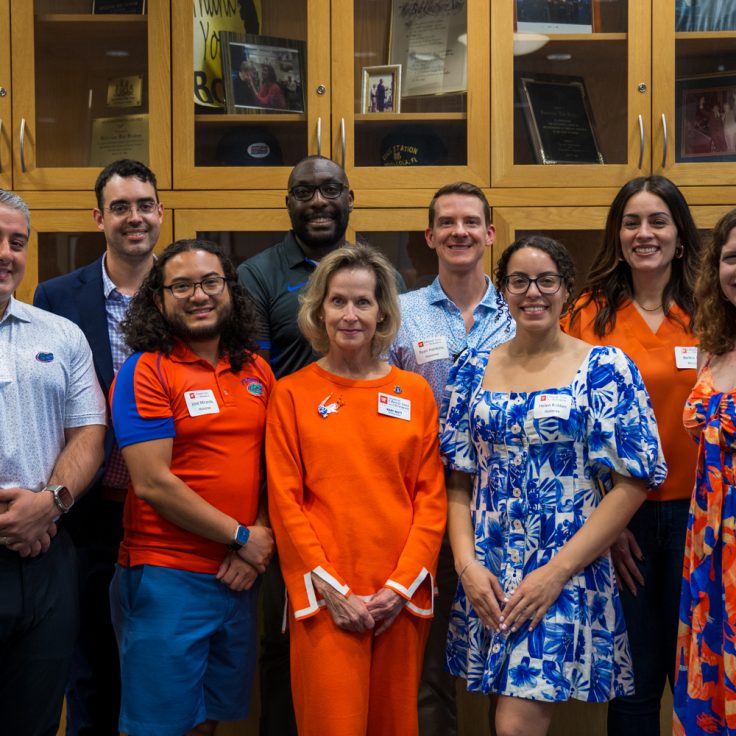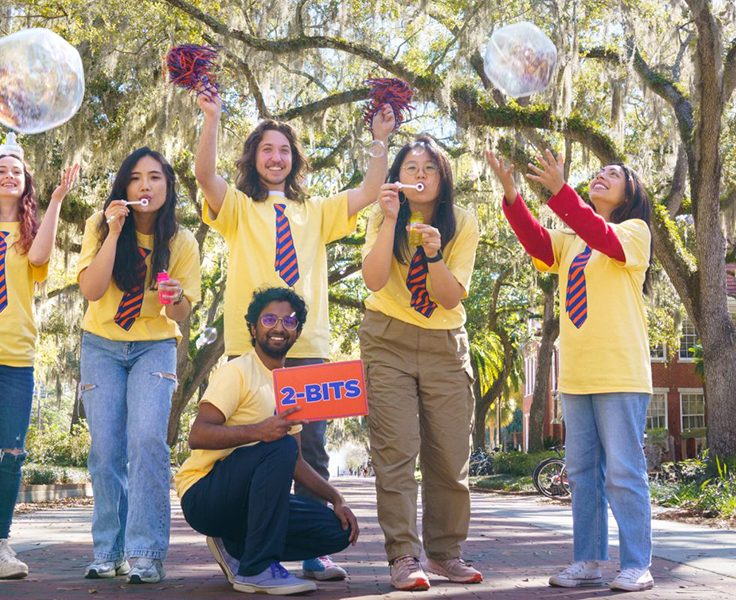
Stephanie Abrams '99 is a meteorologist for The Weather Channel and also co-hosted "Wake Up with AL" with the NBC's AL Roker from 2009 to 2015. The Weather Channel
In Any Weather
Alumni Profile — Stephanie Abrams
By Gigi Marino
Stephanie Abrams ’99 hasn’t taken a sick day in nearly 14 years. If she’s feeling under-the-weather, she has to put on her TV face because, for many, she is the face of the weather. Co-host of The Weather Channel’s America’s Morning Headquarters, Abrams grew up in West Palm Beach. As a child, she was both horrified and fascinated to witness how much devastation Hurricane Andrew wreaked during its 1992 onslaught of southern Florida.
Abrams, now a meteorologist, is a self-identified “science geek.” She says, “I went to space camp as a kid, and I had this great dad who was so into math and science. He had a telescope, and we watched Halley’s Comet. He took us to Yellowstone, and I was in heaven.”
“I stumbled on meteorology and fell in love. It used math and science to explain why the sky is blue and how wind and water could cause so much damage in a hurricane.”
When she began college at the University of Florida, she registered for as many science courses as she could cram into her schedule. “I took everything from geology to oceanography,” she says. “Then I stumbled on a meteorology class and fell in love. It used math and science to explain why the sky is blue and also explained how wind and water could cause so much damage in a hurricane.” As a sophomore, she knew this was the field for her and remembers calling the local meteorologist to quiz her on how to make a career out of weather. After getting her degree in geography with a minor in mathematics at UF, Abrams received a degree in meteorology from Florida State University.
Abrams is a bit like the weather herself, constantly in motion and ever-changing. She doesn’t like to sit still. During her undergraduate days, she was the president of Delta Phi Epsilon and was involved with ACCENT Speakers Bureau, homecoming, and fundraising. She commutes on a weekly basis from New York City to Atlanta, and she always makes time to give back to UF.
In 2008, Abrams delivered the commencement address for the College of Liberal Arts and Sciences. She talked about the butterfly effect, a theory that claims small changes can have dramatic consequences, say, a butterfly flapping its wings in Brazil can affect a tornado in Texas. Weather. Imagine that.


